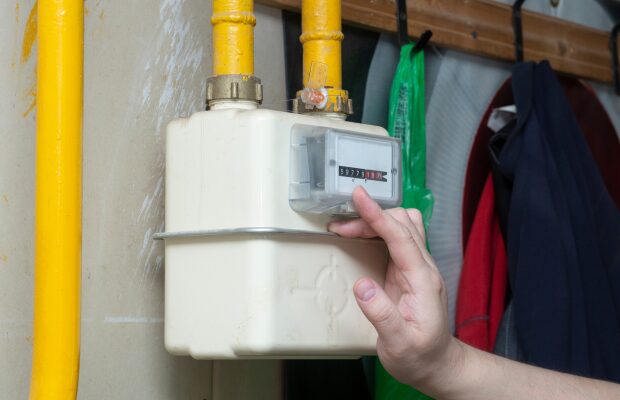In the 23 years between 1996 and 2019, the number of privately rented homes in England more than doubled from 2.1 million to 4.4 million.
And with tenant demand continuing to rise alongside asking rents, there are some amazing opportunities for you if you’re thinking of becoming a landlord.
But is becoming a landlord right for you?
This guide explains how you can become a landlord and reveals everything you’ll need to consider before you do.
Is it worth becoming a landlord?
Becoming a landlord is a fantastic way to create an additional income stream and provide a great home for someone.
Although increased legislation in the private rented sector has put additional pressure on UK landlords, property remains a solid long-term investment.
Becoming a landlord isn’t easy, though, and there’s lots you’ll need to consider before you decide it’s the right step for you to take.
“Becoming a landlord is ultimately like starting up your own business,” says Rob Smith, Managing Director of Ellis & Co.
“You should keep on top of your finances from the start and remain professional with your tenants.
“Working closely with a letting agent is a great way of keeping on top of the legal side of being a landlord. They can also help mediate any issues between you and the tenant, solving issues early on.”
What do I need to do to become a landlord?
Before you become a landlord, you should:
1. Think about the property you’ll let
Would your existing home work as a rental property or should you buy another specifically as a buy-to-let?
Before becoming a landlord, you’ll need to think carefully about the property you’ll be renting out.
Renting out your own home
If you’re looking to rent out your current home, you’ll need to:
1. Look at its state of repair
If your property isn’t up the standards of other rental properties in the area, you may need to spend some money on a renovation to bring it up to scratch.
2. Think about rental demand in the area
Is the area where you live in demand from tenants and is there demand for your type of property?
Speak to your local letting agent and get an idea of the current rental market in your area.
3. Speak to your mortgage lender
If you have a standard residential mortgage on your property, you’ll need your lender’s permission to rent it out.
Your lender may grant you permission to rent your property on your current mortgage if it’s only for the short term.
But if you’re aiming to rent out your home for the long term, you’ll almost certainly need to switch to a buy-to-let mortgage.
4. Let your home furnished or unfurnished
You’ll need to decide if you’re going to rent your property out on a furnished or unfurnished basis.
Even though unfurnished properties may appear empty, they should include:
- Kitchen fixtures
- White goods (oven, hob, fridge, freezer, washing machine)
- Bathroom fixtures
- Carpets or flooring
- Curtains or blinds
A furnished property should include all of the above, and:
- Sofa and chairs
- Dining table and chairs
- Crockery and cutlery
- Wardrobes
- Chest of drawers
- Bed(s)
There are pros and cons to letting your property furnished or unfurnished.
| Furnished pros | Furnished cons | Unfurnished pros | Unfurnished cons |
| The property may let quicker | More up-front and ongoing costs | Less damage or wear and tear | Only suitable for tenants with their own furnishings |
| You can save tax on replacement items | Increased fire regulations | Lower insurance costs | Marketing photos can look empty |
Speak to your local agent and find out more about the demand for furnished and unfurnished properties in your area.
Purchasing a buy-to-let or HMO
If you’re looking to become a landlord by purchasing a buy-to-let or House in Multiple Occupation (HMO), you’ll need to consider:
1. Location
Where your buy-to-let or HMO is located is hugely important:
- Is it close to amenities, schools, and transport links?
- Is it in an area with restricted planning laws, such as a Conservation Area or Article 4 area?
- Is it in an area with an additional HMO licensing scheme in place?
2. Flat or house?
Think about whether tenant demand in your chosen area is for flats or houses?
If you’re thinking of buying a flat to rent out, you’ll also need to consider:
- Additional costs such as ground rent and maintenance charges
- Any lettings restrictions on the lease
3. Indoor and outdoor space
Think carefully about what potential tenants would want from the property you purchase:
- Will they need off-street parking?
- Is a garden likely to be important to them?
- Would they be attracted to an open-plan layout?
- If you’re considering converting to an HMO, does the property have enough space for a large communal area and enough bedrooms?
2. Understand the kinds of tenants you want
Whether you’re letting out your existing home or purchasing a buy-to-let property, you’ll need to understand the kind of tenant you want to attract.
Are you looking to appeal to:
- Working professional singles and couples?
- Families?
- Students?
- Groups of working housemates?
For example, while a single, professional worker or a couple may prefer a flat close to transport links, a renting family’s priorities are more likely to be on indoor and outdoor space, and schools.
3. Consider your costs against what you’ll earn
Being a landlord is a great way to earn an income through rent – but there are lots of costs involved, too, including:
1. Ongoing maintenance and repairs
Rental properties do tend to suffer from wear and tear and you’re also responsible for ensuring the property is safe for your tenants to live in.
2. Mortgage repayments
If you have a mortgage on your rental property, this will impact the profit you make from your tenant’s rental income.
3. Insurance costs
You’ll need to take out a suitable buildings insurance policy when you rent out your property.
If you’re renting it out on a furnished basis, meanwhile, you should also consider contents insurance.
Other landlord insurance you could consider includes:
- Rent guarantee insurance
- Liability insurance
- Home emergency cover
Many landlord insurance policies offer several options bundled into one package, so shop around for the policy that suits you best.
4. Letting agent fees
Using a letting agent to find tenants or manage your rental property for you can be a great route to peace of mind.
If you use an agent to find and reference tenants for your property, you’ll probably pay a fixed fee.
And if you decide that a full management service is right for you, your agent will take a percentage of your rental income as payment.
5. Compliance costs
Regular costs you’ll need to factor in include:
- Annual gas safety certificate
- Electrical Installation Condition Report (EICR) every five years
- Energy Performance Certificate (EPC) every 10 years
If you’re renting out a House in Multiple Occupation (HMO), you also need to consider licensing costs every five years in England.
Work out your rental yield
Working out a property’s potential rental yield can be a great way to understand how profitable it might be before you commit to renting it out.
Rental yield shows you how much profit you’ll make in a year as a percentage of a property’s value.
To calculate rental yield:
- Divide the property’s annual projected rental income by its value
- Multiply that number by 100
For example, a property worth £250,000 that generates £14,000 in annual rent would have a rental yield of 5.6%.
It’s important to remember that this calculation tells you your property’s gross yield and doesn’t take into account your ongoing landlord costs.
4. Understand your tax obligations
When you become a landlord, it’s important to fully understand your tax obligations:
1. Income tax
If you earn an income from your rental property of more than £2,500 per year, you’ll need to complete an annual self-assessment tax return.
How much tax you pay will depend on how much rental income you earn and any other sources of income you have.
Before calculating your total rental income, you can deduct some of your costs, including:
- Utility bill payments you make for the property
- Insurance costs related to the property
- Letting agent fees
- Accountancy fees
- Ground rent and service charges
- Direct costs, such as phone calls, stationery, and advertising
- Maintenance and repair costs, but not improvements
- Compliance costs, such as gas and electrical safety checks, and Energy Performance Certificate (EPC) expenses
Mortgage interest costs can no longer be deducted from tax calculations, but you can claim a 20% tax credit instead.
You can also claim tax relief on replacing items if your property is rented on a furnished basis.
These include:
- Furniture
- Carpets, curtains, linen
- Appliances such as fridges, freezers, and ovens
Replacement Relief only applies to the cost of a ‘modern equivalent’, so if you replace a fridge-freezer that originally cost you £1,000 with one that costs £2,000, you can only claim tax relief on £1,000.
2. National Insurance
If your rental profits exceed £6,725 per year and are your main source of income, you’ll need to pay Class 2 National Insurance.
3. Stamp duty
If you’re considering buying a property to rent out, you’ll need to consider additional stamp duty costs for landlords.
Buy-to-let properties and second homes are subject to a 3% stamp duty surcharge, meaning the overall rates are:
| Portion of purchase price | Landlord stamp duty rate |
| £0 – £125,000 | 3% |
| £125,001 – £250,000 | 5% |
| £250,001 – £925,000 | 8% |
| £925,001 – £1.5m | 13% |
| £1.5m+ | 15% |
4. Capital gains tax
If you sell your rental property in the future, you may be liable for capital gains tax.
The tax you’ll pay is calculated on any ‘gain’ you make – the difference between what you originally paid for your property and what you sell it for.
Capital gains tax is charged at 18% if you’re in the basic rate band of income tax, and 28% if you’re in the higher or additional rate band.
Like income tax, there are deductions you can make to bring down your taxable gain, including:
- Your capital gains tax personal allowance
- Stamp duty charges from your original purchase
- The cost of improvements made to the property
- Estate agent and legal fees from the sale
5. Think about your landlord responsibilities and the law
Landlord law can be complicated, which is why so many landlords choose to use letting agent management services.
But knowing and understanding your responsibilities is crucial before you become a landlord:
1. The Homes (Fitness for Human Habitation) Act
Your main landlord responsibility is ensuring that the property you’ll be renting out is safe for tenants.
Under the Homes (Fitness for Human Habitation) Act, tenants can take legal action if they believe their property is unfit to live in.
2. Gas safety
You must ensure any gas systems in your rental property are installed and assessed annually by a Gas Safe engineer.
Once the assessment is complete, you must also give your tenants a copy of the gas safety certificate before they move in, or within 28 days if they’re an existing tenant.
3. Electrical safety
All electrics, including wiring, fittings, and appliances, supplied by you must be safe to use.
You must also have an Electrical Installation Condition Report (EICR) carried out at your rental property every five years.
Once complete, you must supply a copy of the report to your tenants before they move in, or within 28 days if they are existing tenants.
4. Energy Performance Certificate (EPC) and energy standards (MEES)
To legally market a property as available to rent, you must have a valid Energy Performance Certificate (EPC).
And under Minimum Energy Efficiency Standards (MEES) rules, the property must have an EPC rating of at least ‘E’.
5. Fire safety
Working smoke alarms must be provided on each floor of your rental property and a carbon monoxide alarm placed in any room with a solid fuel burning appliance.
Any furniture or furnishings supplied by you must meet fire safety standards, too.
6. Tenancy deposits and prescribed information
You must protect your tenant’s deposit in one of the available tenancy deposit protection schemes within 30 days of receiving it.
Your tenants must also be given certain prescribed information within 30 days, including:
- A copy of the government’s ‘How to Rent’ guide
- Information on their deposit and which scheme it’s protected in
- The address of the property
- Your name, address, and contact details
7. Tenant fees and deposit caps
Under the Tenant Fees Act 2019, you can’t charge your tenant any additional fees other than:
- Rent
- A refundable holding deposit
- A tenancy deposit
- For changes to the tenancy agreement
- For terminating the tenancy early
- For late payment of rent
- For replacing keys and locks
The amount you can charge your tenants as a deposit is also capped at:
- Five weeks’ rent if the annual rent is less than £50,000
- Six weeks’ rent if the annual rent exceeds £50,000
Holding deposits, meanwhile, are capped at one week’s rent.
6. Know your tenant’s rights – and yours
Your tenants will have certain rights when they move into your rental property, including the right to:
- Live in a safe property that’s in a good state of repair
- Have their deposit protected and returned at the end of their tenancy
- Know who their landlord is
- Live in the property undisturbed and with ‘quiet enjoyment’
As a landlord, you have the right to:
- Be paid rent in full and on time as per your tenancy agreement
- Expect your property to be looked after appropriately by your tenant
- Enter the property to carry out repairs with adequate notice
- Gain possession of your property at the end of a fixed term tenancy
- Gain possession of your property during a fixed term tenancy if you have grounds to do so
- Sell your property
7. Consider using a letting agent
Using a letting agent is a great way to find the best tenants for your rental property and take away the burden of compliance:
Finding tenants
Finding the right tenant, or tenants, for your rental property is key.
And the best way to find and reference them is through a letting agent.
An agent will be able to:
- Access their database of tenants looking for properties
- Market your rental property on the major online portals and on social media
- Help with professional photography that shows off your property
- Reference potential tenants and perform background and financial checks
- Show potential tenants around your property
- Undertake Right to Rent checks on your behalf
- Draw up a tenancy agreement and protect your tenant’s deposit
- … and much, much more
Property management
Long-term management of a rental property can be time consuming and stressful for landlords, so full management from a letting agent is a great way to lessen the workload.
An agent’s full management service will usually include all tenant-find services:
- Arranging the annual gas safety assessment
- Arranging an electrical installation assessment
- Ongoing full compliance of all other tenancy laws and regulations
- Collection of rent and chasing arrears
- Serving possession notices
- Renewing tenancies
- Regular property inspections
- Arranging maintenance and repairs
8. Understand how to be a good landlord
Once you have good tenants in your rental property, the next step is to be a good landlord in return.
Holding on to good tenants can mean fewer void periods and less damage or wear and tear to your property – meaning you’ll save money.
To keep your tenants happy in your property, you should:
- Be proactive when they contact you and respond as soon as you can
- Fix any maintenance or repair issues quickly
- Be fair and respect your tenant’s rights, while ensuring that they respect yours
- Be considerate at all times and flexible when you can
Further reading…
- Nine tips to make your buy-to-lets successful
- All the tenant rights you need to know about
- Key changes for landlords
Check out our landlord services: www.ellisandco.co.uk/l…








